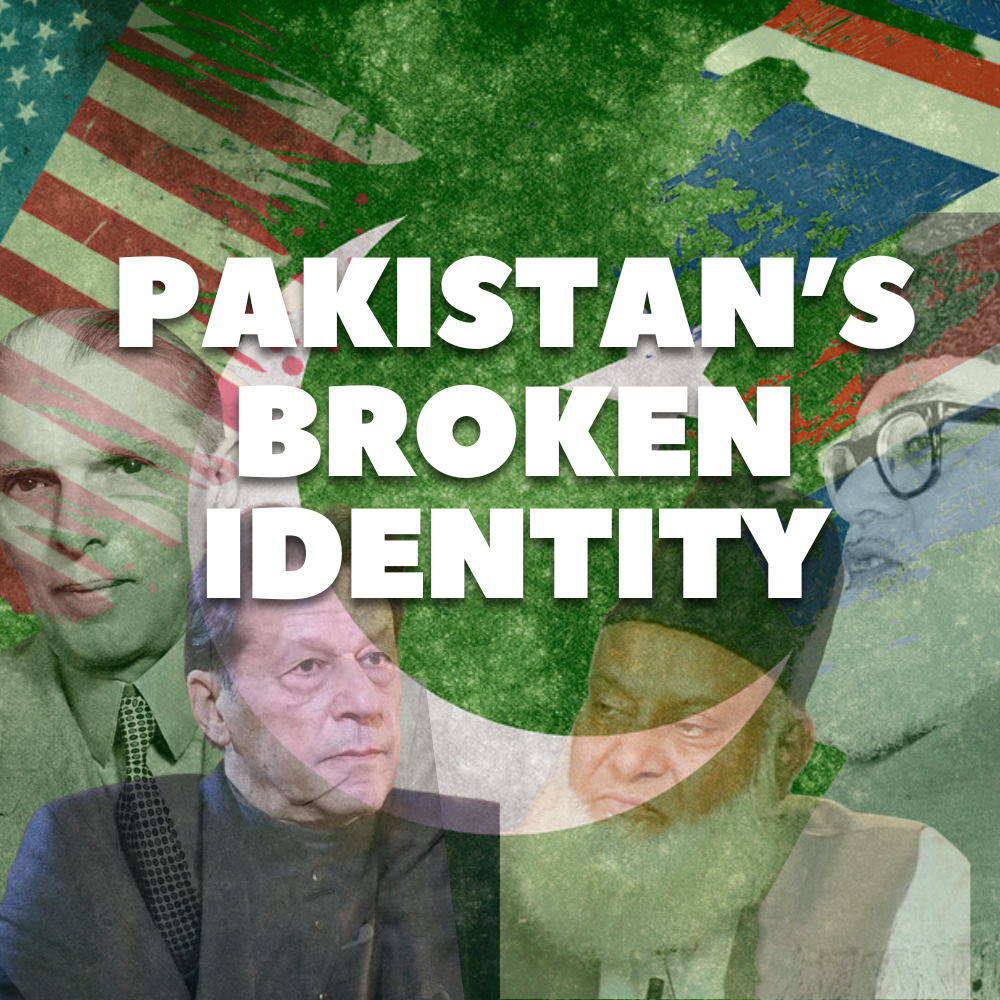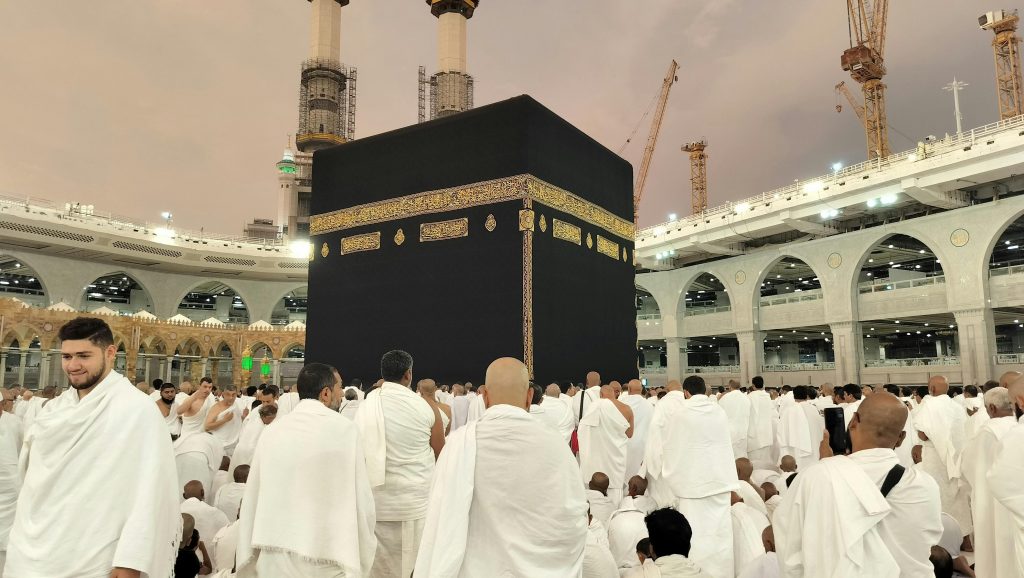Introduction
Throughout history, great civilizations have taken immense pride in their languages, viewing them as both the lifeblood of their culture and a testament to their identity. The Ancient Greeks celebrated their language as the medium of philosophy and democracy, weaving it into the very fabric of their intellectual and political legacy. The Romans, on the other hand, immortalized Latin through their enduring contributions to poetry, plays, and prose, ensuring its place as a cornerstone of Western civilization.
Most notably, the Arabs, who relied heavily on oral tradition during much of their early history, held their language in unparalleled esteem. Arabic was not merely a tool of communication but a profound expression of artistry and identity. Through intricate poetry and eloquent prose, they celebrated their triumphs, recorded their lineage, and passed down wisdom from one generation to the next. Their language became a vessel for preserving their history, values, and aspirations, forming the very essence of Arab culture.
The Arabic language also holds unparalleled importance in the realm of Islamic sciences, as it serves as the foundation for its transmission and understanding. The Qur’an, having been revealed in Arabic, and the Prophet ﷺ, having been a speaker of Arabic, ensures that any understanding derived from these two sources must be done through the lens of this native tongue. Attempting it through any other language can only result in deficiency and decay.
Evolution of the Arabic Language
Before proceeding further, it is essential to clarify what is meant by “Arabic.” In contemporary terms, Arabic does not refer to a single language but rather a dialectal continuum encompassing numerous varieties of what is considered one language. When discussing Arabic in the context of Islam, it specifically refers to the language spoken by the Arabs during the time of the Prophet ﷺ and the subsequent generations, which has been preserved as a literary and liturgical language known as Classical Arabic or Al-Fusha.
Following the Islamic conquests, Classical Arabic underwent significant linguistic changes through contact with other languages, eventually evolving into the diverse Arabic dialects spoken today. While Classical Arabic is often considered a “dead” language due to the lack of native speakers and communities using it conversationally, its status is unique. The entire corpus of Islamic literature is written in Classical Arabic, and its preservation remains a priority, making it a widely taught and learned second language.
Modern Standard Arabic (MSA), closely related to Classical Arabic, retains its grammar while incorporating modern vocabulary and favoring certain constructions over others. For the purposes of this discussion, “Arabic” will henceforth refer specifically to Classical Arabic.
The importance of the Arabic language to the religion of Islam and its understanding is one gleaned from the Quran itself, as in the following verses:
الٓر ۚ تِلْكَ ءَايَـٰتُ ٱلْكِتَـٰبِ ٱلْمُبِينِ إِنَّآ أَنزَلْنَـٰهُ قُرْءَٰنًا عَرَبِيًّا لَّعَلَّكُمْ تَعْقِلُون
“Alif, Lām, Rā. These are the verses of the clear Book. Indeed, We have sent it down as an Arabic Qur’ān that you might understand.” (12:1-2)
وَإِنَّهُۥ لَتَنزِيلُ رَبِّ ٱلْعَـٰلَمِينَ نَزَلَ بِهِ ٱلرُّوحُ ٱلْأَمِينُ عَلَىٰ قَلْبِكَ لِتَكُونَ مِنَ ٱلْمُنذِرِينَ بِلِسَانٍ عَرَبِىٍّ مُّبِينٍ
“And indeed, it [i.e., the Qur’ān] is the revelation of the Lord of the worlds. Brought by the trustworthy spirit. Upon your heart, so that you may be among the warners. In a clear Arabic tongue.” (26:192-95)
وَكَذَٰلِكَ أَنزَلْنَـٰهُ قُرْءَانًا عَرَبِيًّا وَصَرَّفْنَا فِيهِ مِنَ ٱلْوَعِيدِ لَعَلَّهُمْ يَتَّقُونَ أَوْ يُحْدِثُ لَهُمْ ذِكْرًا
“And thus We have sent it down as an Arabic Qur’ān and have diversified the warnings within that perhaps they will avoid sin or it would cause them remembrance.” (20:113)
وَلَقَدْ ضَرَبْنَا لِلنَّاسِ فِى هَـٰذَا ٱلْقُرْءَانِ مِن كُلِّ مَثَلٍ لَّعَلَّهُمْ يَتَذَكَّرُونَ قُرْءَانًا عَرَبِيًّا غَيْرَ ذِى عِوَجٍ لَّعَلَّهُمْ يَتَّقُونَ
“And We have certainly presented for the people in this Qur’ān from every kind of example – that they might remember. As an Arabic Qur’ān, without any deviances, so that they might become righteous” (39:27-28)
حمٓ تَنزِيلٌ مِّنَ ٱلرَّحْمَـٰنِ ٱلرَّحِيمِ كِتَـٰبٌ فُصِّلَتْ ءَايَـٰتُهُۥ قُرْءَانًا عَرَبِيًّا لِّقَوْمٍ يَعْلَمُونَ
“Hā, Meem. This is a revelation from the most Compassionate, the most Merciful. A Book whose verses have been detailed, an Arabic Qur’ān for a people who know.” (41:1-3)
إِنَّا جَعَلْنَـٰهُ قُرْءَٰنًا عَرَبِيًّا لَّعَلَّكُمْ تَعْقِلُونَ
“Indeed, We have made it an Arabic Qur’ān that you might understand.” (43:3)
وَكَذَٰلِكَ أَوْحَيْنَآ إِلَيْكَ قُرْءَانًا عَرَبِيًّا لِّتُنذِرَ أُمَّ ٱلْقُرَىٰ وَمَنْ حَوْلَهَا وَتُنذِرَ يَوْمَ ٱلْجَمْعِ لَا رَيْبَ فِيهِ ۚ فَرِيقٌ فِى ٱلْجَنَّةِ وَفَرِيقٌ فِى ٱلسَّعِيرِ
“And thus We have revealed to you an Arabic Qur’ān so that you may warn the Mother of Cities [i.e., Makkah] and those around itand warn of the Day of Assembly, about which there is no doubt. A party will be in Paradise and a party in the Blaze.” (42:7)
وَمِن قَبْلِهِۦ كِتَـٰبُ مُوسَىٰٓ إِمَامًا وَرَحْمَةً ۚ وَهَـٰذَا كِتَـٰبٌ مُّصَدِّقٌ لِّسَانًا عَرَبِيًّا لِّيُنذِرَ ٱلَّذِينَ ظَلَمُوا۟ وَبُشْرَىٰ لِلْمُحْسِنِينَ
“And before it was the scripture of Moses to lead and as a mercy. And this is a confirming Book in an Arabic tongue to warn those who have wronged and as good tidings to the doers of good.” (46:12)
وَكَذَٰلِكَ أَنزَلْنَـٰهُ حُكْمًا عَرَبِيًّا ۚ وَلَئِنِ ٱتَّبَعْتَ أَهْوَآءَهُم بَعْدَ مَا جَآءَكَ مِنَ ٱلْعِلْمِ مَا لَكَ مِنَ ٱللَّهِ مِن وَلِىٍّ وَلَا وَاق
“And thus We have revealed it as an Arabic legislation.And if you should follow their inclinations after what has come to you of knowledge, you would not have against Allah any ally or any protector.” (13:37)
The notion of the Qur’an being an “Arabic Qur’an” is a recurring theme emphasized throughout the text. This repetition underscores its accessibility to its initial audience—the Arabs of the Arabian Peninsula—ensuring they could comprehend its message directly and with clarity. It speaks to the pride Arabs held in their language and their appreciation for its linguistic eloquence and persuasive power. Moreover, the repetition highlights the preservation of meaning, as Arabic, with its rich vocabulary and intricate grammar, serves as an ideal medium for conveying God’s message to humanity. Importantly, it also establishes a profound connection between the Arabic language and the core of Islam, as both the Qur’an and the Prophet ﷺ—whose language was Arabic—are central to the faith. Consequently, many scholars have underscored the significance of Arabic within the study and understanding of Islamic sciences.
How the Scholars Highlighted the Importance of Arabic
“Indeed, the virtue of the Qur’an is truly recognized by those who understand the speech of the Arabs, who are knowledgeable in the sciences of language, Arabic, and rhetoric, and who study the poetry, speeches, and debates of the Arabs in their moments of pride and their correspondences.” Ibn Qayyim Al-Jawziyyah (d. 751 AH)1
“This blessed Shari’ah is Arabic, so whoever seeks to understand it must do so through the Arabic language, for there is no way to comprehend it except through this means.” Abu Ishaq Ash-Shatibi (d. 790 AH)2
“Whoever loves Allah, loves His chosen Messenger (peace and blessings be upon him). And whoever loves the Arab Prophet loves the Arabs. Whoever loves the Arabs loves the Arabic language, through which the best of books was revealed to the best of both Arabs and non-Arabs. Whoever loves the Arabic language will dedicate himself to it, persist in studying it, and direct his efforts towards it, for it is the tool of knowledge, the key to understanding the religion, and the means of improving both this life and the Hereafter.” Abu Mansur Al-Tha’libi (d. 429 AH)3
“Indeed, when Allah revealed His Book in the Arabic language, and made His Messenger the one to convey the Book and the wisdom through his Arabic language and made the early followers of this religion speakers of it, there was no way to preserve and understand the religion except through mastering this language. Therefore, knowing it became part of the religion and is closer to fulfilling the rituals of the faith.” Ibn Taymiyyah (d. 728 AH)4
“Familiarity with the language has a strong and clear effect on the intellect, character, and religion. It also influences a person’s resemblance to the early generations of this Ummah, the companions and the followers, and such resemblance increases one’s intellect, religion, and character. Furthermore, the Arabic language itself is part of the religion, and knowing it is an obligatory duty. Understanding the Qur’an and the Sunnah is obligatory, and it can only be understood through understanding the Arabic language. That which is necessary to fulfill an obligation is itself obligatory.” Ibn Taymiyyah (d. 728 AH)5
“The sciences related to the Qur’an can be divided into categories: one category serves as a tool for understanding it and extracting the benefits it contains, assisting in knowing Allah’s intended meaning, such as the sciences of the Arabic language, which are indispensable, the science of recitations, the science of abrogation and its verses, the principles of jurisprudence, and similar sciences. These are not the subject of discussion here. However, some may claim that what is not directly a means to understanding the Qur’an is still sought after, as if it were a necessary means. In reality, sciences such as Arabic, the science of abrogation, the science of causes, the science of Meccan and Medinan verses, the science of recitations, and the science of usul al-fiqh are all universally acknowledged by scholars as essential to understanding the Qur’an…” Abu Ishaq Ash-Shatibi (d. 790 AH)6
“Chapter thirty-six of the sciences of language consists of four main pillars: language, grammar, rhetoric, and literature. Knowledge of these is essential for those who engage with the Shari’ah, because the sources of all legal rulings come from the Qur’an and Sunnah, both of which are in the Arabic language. The narrators of these texts were Arabs, and the explanation of their complexities comes from their language. Therefore, it is necessary to know the sciences related to this language for anyone who seeks knowledge of the Shari’ah.” Ibn Khaldun (d. 808 AH)7
The importance of the Arabic language and understanding it is one deeply understood by the scholars of Islam. They not only connect the Arabic language to ones understanding and knowledge of their religion, but also to ones, character, intellect, and love for the Prophet of God ﷺ.
Ibn Taymiyyah remarks that it is obligatory for people to learn the Arabic language. It is important to mention that everyone is different, and one must only learn the Arabic language to the degree that satisfies his obligations. For an average Muslim, it suffices to learn enough to satisfy prayer and recite and memorize the Quran. For one seeking knowledge, the threshold is ever so high, as the medium of the knowledge he seeks is in the Arabic language. Thus, it is behooved upon him to learn and master the language of the Arabs.
Another salient point made by Imam Ibn Al-Qayyim is that it is not only an understanding of the grammar of the language, but what it means to its people, such as poetry, literature, artistic expression, proverbs, usage, rhetoric, oration, and debating. In this day and age, we see people learning basic grammatical knowledge of Arabic, what is truly elementary, just enough to read a book without training wheels, and they go off to analyze, interpret and exegete.
Ibn Abbas narrated that “A man asked the Prophet, ‘Which knowledge of the Qur’an is the best?’ The Prophet replied, ‘Its Arabic language, so seek it in poetry.’” (Sunan Al-Kubra)8
In furtherance of that effect, there is the statement of Imam Ash-Shatibi who notes that one may never attain true mastery or scholarship of the Islamic sciences, until he attains such in the Arabic language.
“The Shari’ah is Arabic, and since it is Arabic, it can only be fully understood by one who understands the Arabic language properly. Both the Shari’ah and the Arabic language follow the same pattern, except for the aspects of its miraculous nature (meaning that the language of the Shari’ah in the Qur’an, Hadith, and the speech of the Arabs is in the same style and approach, except for the unique features of the Shari’ah’s miraculous eloquence). If someone is a beginner in understanding Arabic, they are also a beginner in understanding the Shari’ah; if they are intermediate in Arabic, they are also intermediate in understanding the Shari’ah, and the intermediate has not yet reached the highest level. But when one reaches the highest level in Arabic, they reach that level in understanding the Shari’ah. Their understanding then becomes an authority, as the understanding of the Companions and others who were eloquent in speech was considered an authority. Whoever does not reach their level has a deficiency in understanding the Shari’ah in proportion to their shortcoming. Anyone whose understanding is deficient is not considered an authority, and their opinion will not be accepted.” Abu Ishaq Ash-Shatibi (d. 790 AH)9
Lack of Language Comprehension can Lead One Astray
Islamic scholars have long emphasized the inseparable connection between the Arabic language and the religion of Islam, asserting that the decline of Arabic would inevitably lead to the weakening of the faith itself. In modern times, this concern has grown as the proper study of Arabic has waned, coinciding with a broader global decline in the emphasis on language learning, driven in part by the rise of technology. This trend poses significant risks for the Muslim community, as the loss of Arabic linguistic proficiency undermines their ability to engage deeply with foundational Islamic texts, potentially threatening the preservation of their religious heritage and identity.
“If the knowledge of grammar were to be lost, the understanding of the Qur’an would be lost, and the understanding of the Hadith of the Prophet (peace be upon him) would be lost. If both were lost, Islam would be lost. Whoever seeks grammar and language with the intention of upholding the Shari’ah through them, in order to understand the speech of Allah and His Messenger, and to enable others to understand it, will earn a great reward and a high rank. This is something that no one should fall short of.” Ibn Hazm (d. 456 AH)10
“The linguists have become rare in our time. You find a jurist who does not know the language of jurisprudence, a reciter who does not know the language of the Qur’an, and a hadith scholar who does not pay attention to the language of the hadith. This is negligence and ignorance. It is important to give attention to the language of the Book and the Sunnah in order to understand the message.” Imam Adh-Dhahabi (d. 748 AH)11
“Know that this chapter is one of the most noble chapters of this book, and that benefiting from it has no limit nor end. This is because most of those who have gone astray from the path of the Shari’ah and deviated from the most excellent way have been led astray and weakened by their ignorance and lack of mastery in this noble, honorable language, with which the entire community was addressed.” Ibn Jinni (d. 392 AH)12
Imam Al-Bukhari narrated that “Al-Hasan said: “Foreignness in language has destroyed them; one of them reads a verse and becomes confused about its meanings, to the point of fabricating lies against Allah concerning it.”13
As the scholars have mentioned, it is not only an ignorance of Arabic which leads many astray, but also foreignness to it, being a non-native speaker. Although many of the greatest scholars of Islamic history and the Arabic language were non-native speakers from regions such as the sub-continent, north Africa, and areas previously under the Sassanid Empire, they had the privilege of living under an Islamic caliphate, whose national language was Arabic. They were able to immerse themselves fully in communities who were native speakers. This necessary immersion is impossible in the west and can be achieved in very few places in the world. And thus, what Al-Hasan has said holds true, specifically in the western lands.
وَلَوْ جَعَلْنَـٰهُ قُرْءَانًا أَعْجَمِيًّا لَّقَالُوا۟ لَوْلَا فُصِّلَتْ ءَايَـٰتُهُۥٓ ۖ ءَا۬عْجَمِىٌّ وَعَرَبِىٌّ ۗ قُلْ هُوَ لِلَّذِينَ ءَامَنُوا۟ هُدًى وَشِفَآءٌ ۖ وَٱلَّذِينَ لَا يُؤْمِنُونَ فِىٓ ءَاذَانِهِمْ وَقْرٌ وَهُوَ عَلَيْهِمْ عَمًى ۚ أُو۟لَـٰٓئِكَ يُنَادَوْنَ مِن مَّكَانٍۭ بَعِيدٍ
“And if We had made it a foreign [i.e., non-Arabic] Qur’ān, they would have said, “Why are its verses not explained in detail in our language? Is it then a foreign recitation and an Arab messenger?” Say, “It is, for those who believe, a guidance and cure.” And those who do not believe – in their ears is deafness, and it is upon them blindness. Those are being called from a distant place.” (41:44)
Is Arabic Superior to Other Languages?
Many scholars have made it a point to say that the Arabic language is objectively and inherently superior to all other languages. A few statements of the scholars expressing this view are as follows:
“Whoever is guided by Allah to Islam, whose heart is opened to faith, and who is granted sincerity in it, will believe that Muhammad is the best of messengers, Islam is the best of religions, the Arabs are the best of nations, and Arabic is the best of languages and tongues. Turning towards it and striving to understand it is part of the religion, for it is the tool of knowledge.” Abu Mansur Ath-Tha’libi (d. 429 AH)14
“The predecessors always disliked altering the symbols of the Arabs, even in matters of transactions, such as speaking in languages other than Arabic without necessity. This was explicitly mentioned by Malik, al-Shafi‘i, and Ahmad. Malik even said: ‘Whoever speaks in our mosque in a language other than Arabic shall be removed from it.'” Ibn Taymiyyah (d. 728 AH)15
“The Arabic tongue is the most expansive of languages in its scope and the richest in its vocabulary. We do not believe that any human, apart from a prophet, could encompass its full knowledge. However, nothing of it is lost to the generality of its speakers, such that there is always someone among them who knows it.” Imam Ash-Shafi’i (d. 204 AH)16
“And that is because the Arabic language is the most eloquent, the most clear, the most comprehensive, and the most expressive of the meanings that reside in the soul. For this reason, the most noble of books was revealed in the most noble of languages, to the most noble of messengers, through the most noble of angels, taking place in the most noble of lands, and its revelation began in the most noble month of the year, Ramadan. Thus, it was perfected from every aspect.” Ibn Kathir (d. 774 AH)17
Islamic scholars have often emphasized the superiority of the Arabic language, considering it unparalleled in eloquence, clarity, and richness. Abu Mansur Ath-Tha’libi regarded Arabic as the best of all tongues, essential for understanding Islam and as a tool for acquiring knowledge. Ibn Taymiyyah highlighted the importance of preserving Arabic as a marker of Islamic identity, even reporting a saying of Imam Malik discouraging the use of other languages inside mosques. Imam Ash-Shafi’i described Arabic as the most expansive and rich in vocabulary, a language so vast that only a prophet could fully comprehend it. Ibn Kathir echoed these sentiments, linking Arabic’s unmatched expressiveness to its divine selection as the language of the Qur’an, revealed in the most noble contexts. Collectively, these scholars underscore that Arabic’s linguistic excellence is inseparable from its role as the vehicle for Islam’s sacred message.
This opinion, not shy in its acceptance by Islamic scholars across history, is the dominant position within Ahlus-Sunnah wal Jama’ah. Only one other is famously known to have diverged from and opine on this opinion and that is Ibn Hazm (d. 456 AH), who, likely due to his Zahirite methodology, does not believe in the superiority of one language over another.
“Some people have mistakenly believed that their language is the best of all languages. This notion, however, is meaningless because the criteria for superiority are well-known and pertain either to action or specific qualities—neither of which applies to languages. No religious text explicitly favors one language over another. Allah says: “We never sent a messenger except in the language of his people, to make things clear to them” (14:4). He also says: “We have made it easy to understand in your language, so that they may remember” (44:58). Thus, Allah explains that the Quran was revealed in the Arabic language so that the Prophet’s people could understand it—not because Arabic is inherently superior to other languages. Galen [a Greek philosopher] erred in this matter by claiming that Greek is the best language because all other languages either resemble the barking of dogs or the croaking of frogs. This is a grave misunderstanding because to anyone who hears a language other than their own and does not understand it, it will sound like the description Galen gave, without any difference. Some have argued that Arabic is the best language because it is the language in which the Word of Allah was revealed. This argument is meaningless because Allah has informed us that He sent every messenger with the language of their people. He also said: “Surely in that case I should indeed be in manifest error.” (36:24). And: “And indeed, it is in the scriptures of the former peoples” (26:196). Thus, the Word of Allah and His revelations have descended in various languages. The Torah, the Gospel, and the Psalms were revealed in different languages: Hebrew, Syriac, and others. Allah spoke to Moses in Hebrew and revealed the scriptures to Abraham in Syriac. This makes all languages equal in this regard. As for the language of the people of Paradise and Hellfire, we have no knowledge except what is stated in explicit texts and established consensus—and there is neither a definitive text nor consensus on this matter. However, it is necessary for them to have a language with which they communicate.” Ibn Hazm (d. 456 AH)18
It is important to note that this opinion is fringe and not accepted by the majority of scholars, just as the rest of Ibn Hazm’s and the Zahirite views are not readily accepted, unless supported otherwise by a mainstream position with one of the dominant schools. This view is, however, in alignment with modern generative linguistics and the concept of Universal Grammar (UG) founded by Noam Chomsky wherein, at least on linguistic grounds, all languages are fundamentally similar and they only differ in superficial externalization such as vocabulary and sentence structure.
Concluding Thoughts
The Arabic language stands as a cornerstone of Islamic identity, deeply intertwined with the faith’s history, theology, and practice. Its eloquence, expansive vocabulary, and intricate grammar not only elevate it as a linguistic marvel but also serve as the divine medium for the Qur’an, preserving its meanings and messages across generations. Scholars of Islam have long stressed the critical role of Arabic in safeguarding the religion’s authenticity, warning that the decline of the language would inevitably impact the understanding and practice of the faith. As such, efforts to learn, preserve, and promote Arabic are not merely acts of cultural preservation but essential endeavors to maintain the vitality of Islam itself. The enduring relevance of Arabic underscores its unique role as a bridge between the temporal and the eternal, connecting Muslims to their heritage and their Creator.
وقد قصرت أعمارنا وعلومنا
يطول علينا حصرها ونكابده
وفي كلها خير ولكن أصلها
هو النحو فاحذر من جهول يعانده
به يعرف القرآن والسنة التي
هما أصل دين الله ذو أنت عابده
Our lifespans are short, and so is our knowledge,
And encompassing all knowledge is a difficult task.
All sciences are good, but the best of them,
Is grammar—so beware of the ignorant who dismiss it.
Through grammar, the Qur’an and Sunnah are understood,
both the foundations of God’s religion of which you worship.
Abu Hayyan Al-Andalusi
References
- الفوائد المشوق إلى علوم القرآن ص 7 دار الكتب العلمية ↩︎
- كتاب الموافقات ج 2 ص 62 دار المعرفة ↩︎
- فقه اللغة وسر العربية ص 22 دار مؤسسة المختار ↩︎
- اقتضاء الصراط المستقيم ص 162 دار المكتبة الرياض الحديثة ↩︎
- اقتضاء الصراط المستقيم ص 207 دار الرياض الحديثة ↩︎
- كتاب الموافقات ج 3 ص 375 دار المعرفة ↩︎
- المقدمة ج 3 ص 1264 دار الكتب العلمية ↩︎
- السنن الكبرى ج 3 ص 141 دار المعرفة ↩︎
- كتاب الموافقات ج 4 ص 115 دار المعرفة ↩︎
- التلخيص في وجوه التخليص ج 1 ص 128 دار ابن حزم ↩︎
- بيان زغل العلم والطلب ص 20 دار المكتبة الأزهرية للتراث ↩︎
- الخصائص ج 3 ص 245 دار الكتب العلمية ↩︎
- تاريخ الكبير ج 5 ص 93 دار الناشر ↩︎
- فقه اللغة وسر العربية ص 22 دار مؤسسة المختار ↩︎
- مجموع الفتاوى ج 32 ص 25 ↩︎
- كتاب الأم ج 1 ص 17 دار ابن حزم (الرسالة) ↩︎
- تفسير ابن كثير ج 2 ص 564 دار الحديث بالقاهرة ↩︎
- الأحكام في أصول الأحكام ج 1 ص 32 دار العاصمة بالقاهرة ↩︎









